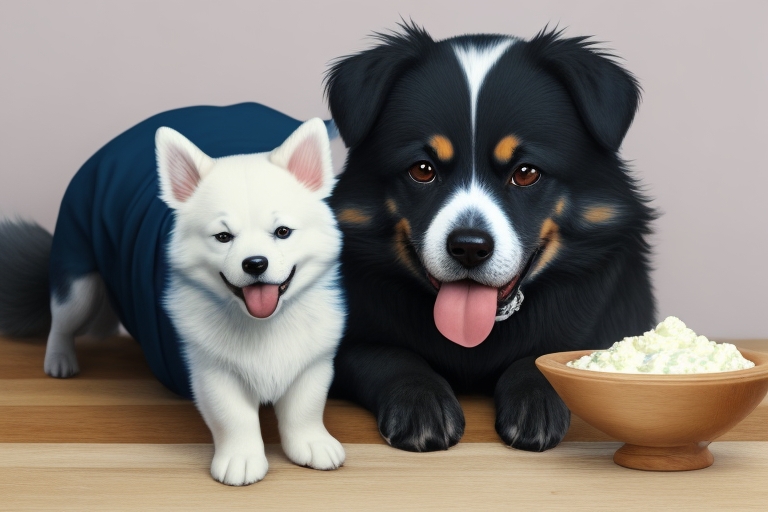Can dogs eat ricotta cheese? Is Ricotta Cheese Safe for Dogs? Understanding the Risks and Advantages:
- Dogs are known for their curious and often indiscriminate appetites, so pet owners must be cautious about what human foods their canine pets consume.
- Ricotta cheese is a dairy product that raises concerns about its safety and suitability for canine eating among the various human foods that dogs may meet.
- can dogs eat ricotta cheese ? absolutely not !, the pet owners must be taken an advice of a veterinarian before adding new items to your dog’s diet.
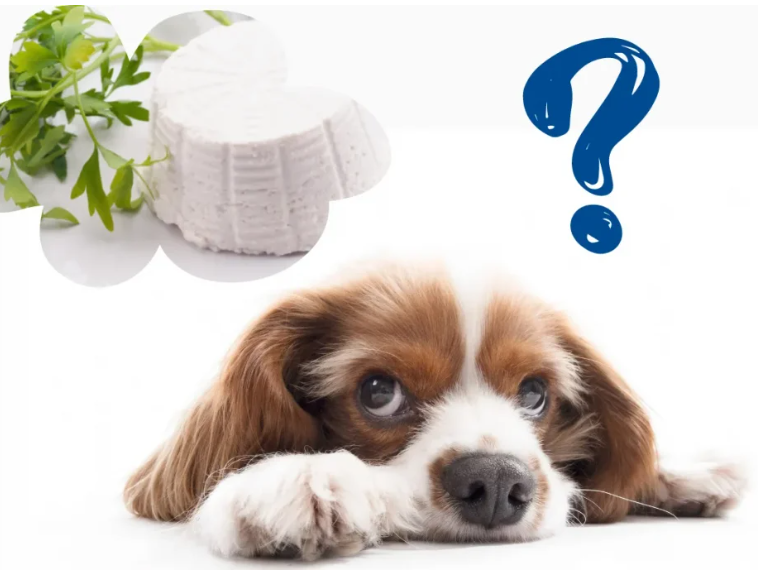
What exactly is Ricotta cheese?
- Ricotta cheese, a soft, creamy Italian cheese, is formed from whey leftover after previous cheese making.
- It’s a common ingredient in a variety of recipes, including lasagna, cannoli, and pastries.
- Ricotta is low in fat and has a mild, somewhat sweet flavor, making it a versatile ingredient in many recipes.
Ricotta Cheese Nutritional Value:
- Ricotta cheese is a dairy product, so it contains a variety of nutrients such as protein, calcium, phosphorus, and numerous vitamins.
- It may provide certain health benefits to humans, including bone health and vital minerals for muscle function.
- However, the nutritional demands of dogs differ from those of humans, and what is good for humans may not be good for canines.
Can dogs eat ricotta cheese ? Is Ricotta Cheese Safe for Dogs to Eat?
While ricotta cheese is not poisonous to dogs, it is not a good treat for them for many reasons:
1. Lactose Intolerance: In general, dogs have lower levels of lactase, the enzyme that aids in the digestion of lactose found in dairy products. Ricotta, like a dairy product, may cause gastrointestinal difficulties such as diarrhea, gas, or bloating in lactose-intolerant dogs.
2. High Fat Content: Ricotta cheese includes fat, but not as much as some other cheeses. In dogs, too much fat can cause pancreatitis, a potentially fatal and painful condition.
3. Salt Content: Some ricotta cheese variants may have a higher salt content, which can be dangerous to dogs, causing increased thirst and urine or, in extreme situations, sodium ion poisoning.
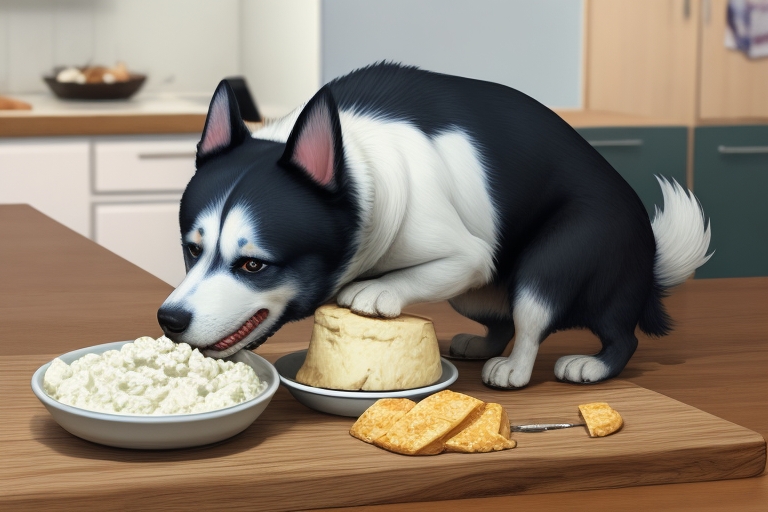
Ricotta Cheese Risks and Caution for Dogs
Pet owners who want to provide ricotta cheese to their pets should be cautious:
Portion Control: If a dog shows no signs of lactose intolerance or other problems, tiny amounts of ricotta cheese may be given on occasion. Always begin with a small amount and monitor for any negative responses.
Select Low-Fat Varieties: If you plan to share your ricotta with your dog, choose low-fat or part-skim varieties. This can help lower the risk of pancreatitis caused by high-fat diets.
Monitor for responses: After feeding your dog ricotta cheese, keep an eye out for any signs of stomach discomfort, allergic responses, or behavioral abnormalities. If any bad responses occur, stop feeding right away.
Safe Dog Treats Alternatives
While ricotta cheese may not be the best dog treat, there are a few safer options that dogs may enjoy:
- 1. Dog-Friendly Fruits and Vegetables: Apple slices (without seeds), carrots, or blueberries are safer and healthier options for dogs.
- 2. Commercial Dog Treats: There are many commercially available dog treats that are specifically developed to satisfy the nutritional demands of a dog. When compared to human foods, these goodies are a safer option.
- 3. Plain, Unsweetened Yogurt: Plain yogurt, in moderation, may be easier for dogs to digest than many other dairy products because to its reduced lactose level. Can dogs eat ricotta cheese
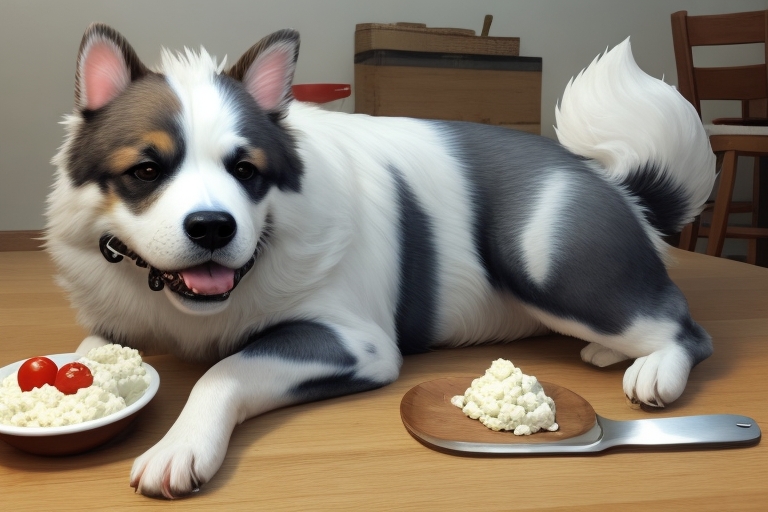
FAQ-(Frequently asked questions)
- Is cottage cheese or ricotta better for dogs?
- As a result, feed your dog low-fat cheeses such as mozzarella, cottage cheese, or soft goat cheese.
- Cottage cheese has less fat and sodium than other cheeses, which helps to lessen the risk of obesity.
- Cottage cheese also contains less lactose, which reduces the likelihood of digestive distress.
2.Can dogs eat creamy cheese?
- Cream cheese is suitable for feeding to dogs, but only the simple versions.
- Any cream cheese flavored with garlic, onion, or chives should be avoided because the allium plant family is hazardous to dogs.
- Cottage cheese is one of the finest selections because it has less fat and salt. Dogs should never be fed blue cheese.
3.Can dogs have yogurt/yoghurt?
- In moderation, dogs can consume plain, unsweetened yogurt. Yogurt contains protein, calcium, and probiotics for digestive health in dogs.
- Some dogs may dislike yogurt’s sour taste or creamy texture.
- Yogurt with added sugars, artificial sweeteners, or poisonous fruits should be avoided.
4. Is ricotta cheese from animal?
- Ricotta can legally be prepared from the milk of cows, sheep, goats, or water buffalo, but the ricotta we most commonly consume-the type you can get in practically any grocery store-is made from cow milk.
- However, before it was used to produce ricotta, cow’s milk was utilized for something else.
5. Is ricotta cheese safe to eat?
- Ricotta is a healthier choice than other cheeses because it includes less salt and fat – 10% fat, of which 6% is saturated.
- It has a light and creamy texture with a slightly gritty texture and delicate flavor that may be used alone or in sweet and savory meals.
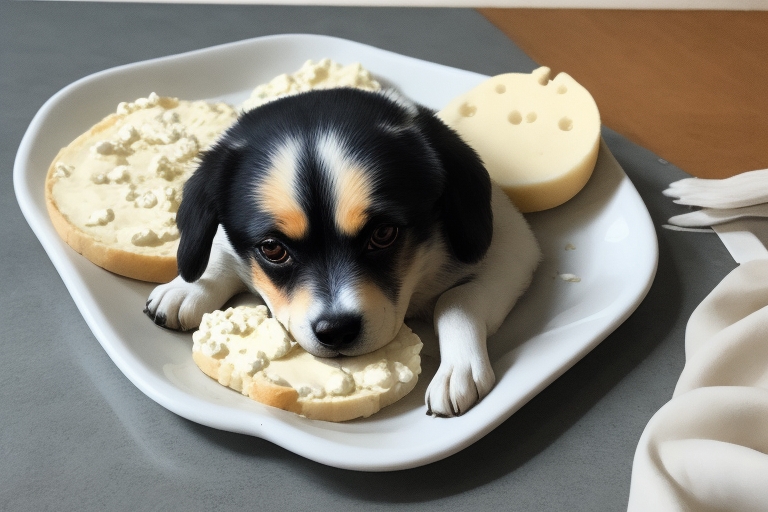
Conclusion:
- While a modest amount of ricotta cheese may not be immediately harmful to dogs, the dangers connected with its ingestion, notably lactose intolerance, high fat content, and salt levels, make it less than ideal as a dog treat.
- Pet owners should prioritize their dog’s health and well-being by selecting safer and more appropriate treats that meet a dog’s nutritional needs.
- Before introducing any new food into a dog’s diet, always speak with a veterinarian, and when in doubt, avoid giving human foods to pets.
- Our canine companions’ health and happiness are vital, and good pet keeping includes feeding them a well-balanced diet tailored to their unique needs and digestive skills.
- In conclusion, while ricotta cheese is not poisonous to dogs, it is recommended to avoid feeding it to your canine companion due to the potential risks linked with lactose intolerance, high fat content, and salt levels.
Always get the advice of a veterinarian before adding new items to your dog’s diet. When it comes to their diet, your dog’s health and well-being should come first.
